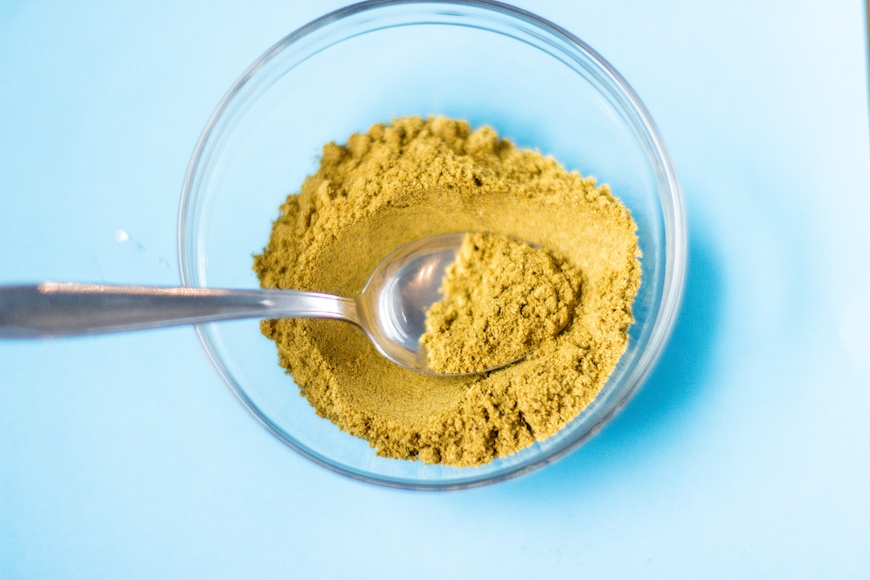How Much Maca Root to Take for Fertility
Over the past few years, Maca has solidified its reputation as a wellness darling. And for good reason: Reported benefits include improving energy levels, libido, fertility, and more. When talking about something as sensitive and important as fertility, though, you want to make sure you look beyond the hype and dig down into what's really known about this buzzy adaptogen.
For starters, what is maca? For those not already familiar with it, maca, also known as Peruvian ginseng, is an edible plant native to South America. Part of the cruciferous family (along with cabbage, cauliflower, and Brussels sprouts), it thrives high in the Andes mountains of Peru, where it has been cultivated and used as a fertility aid for at least 3,000 years.
In South America, the radish- or turnip-like veggie is a primary food source, particularly for those living in the mountain ranges where maca grows. There, the tuber, which tastes more like a potato (with a hint of butterscotch, according to some), is typically cooked into a porridge, added to dishes like empanadas, or ground into flour for breads and cakes. In the U.S., you'll more likely find the root dried and ground into powder or supplement form—prime for sprinkling into your smoothie.
While there's little formal research that has been done on the effects of maca and fertility, here's what we've learned from the research that is available and from numerous reports touting the fertility and health benefits of this South American superfood. And be sure to check in with your doctor before you addanynew supplements or herbs to your diet, especially if you have polycystic ovary syndrome or are taking fertility drugs.
Related Stories

Keep reading to learn 5 ways maca root may increase fertility.

1. It's a natural aphrodisiac
Maca has long been used for its libido-enhancing qualities—legend has it, it was so valued for its potency that it was even used as currency for trade. Incan imperial warriors consumed large quantities of maca before battle to increase their strength and virility. More recently, studies have shown that maca root may alleviate some forms of sexual dysfunction and may also increase sperm count and fertility in men.
2. Maca is rich in vitamins and minerals
There's a reason maca is considered a superfood. It's rich in calcium and potassium, contains trace elements of iron, iodine, copper, manganese, and zinc, as well as vitamins B1, B2, C, and D. Maca is also a complete protein, containing the nine essential amino acids that the body can't produce on its own. A rounded diet, rich in vitamins and minerals, is key to reproductive health. Plus, many of the nutrients available in maca also support hormonal balance (more on that below) which can lead to healthier eggs.
3. It's a hormone balancer and stress reducer
Helping the body to cope with the stress and balance hormones can be key benefits in improving your chance of conceiving. Research has shown that using maca can reduce depression and anxiety. How does maca achieve this? Like traditional ginseng, maca is an adaptogenic herb (non-toxic plants that may help the body regulate stress). More specifically, maca supports the endocrine system, regulating communication between the hypothalamus and pituitary glands, which helps balance the production of hormones. In addition to its adaptogenic qualities, a small study on postmenopausal when showed that maca was able to lower blood pressure.
4. It boosts your immune system
Maca's nutritional value (particularly its high levels of magnesium, a known immune system booster) and adaptogenic qualities that assist with hormone balancing and stress reduction, can also help to support your immune system. This is particularly important for those experiencing immune-related fertility issues.
5. You can use it for an a.m. pick-me-up instead of coffee
Women who are trying to conceive are often advised to reduce their caffeine intake. If you have a daily Starbucks habit and are looking for a replacement for coffee or other forms of caffeine (yep, matcha's got caffeine, too), maca may help. Maca doesn't contain any stimulants like caffeine, but energizes the body through its nutritional value and possibly by stabilizing blood sugar levels to avoid peaks and crashes. These qualities also make maca a long-lasting energizer, helping you maintain energy levels throughout the day instead of spiking and crashing as you might from coffee.
Now that you're on the maca train—can you havetoo muchof it? Also, find out how adaptogens can help your stressed-out skin.
How Much Maca Root to Take for Fertility
Source: https://www.wellandgood.com/maca-root-fertility/